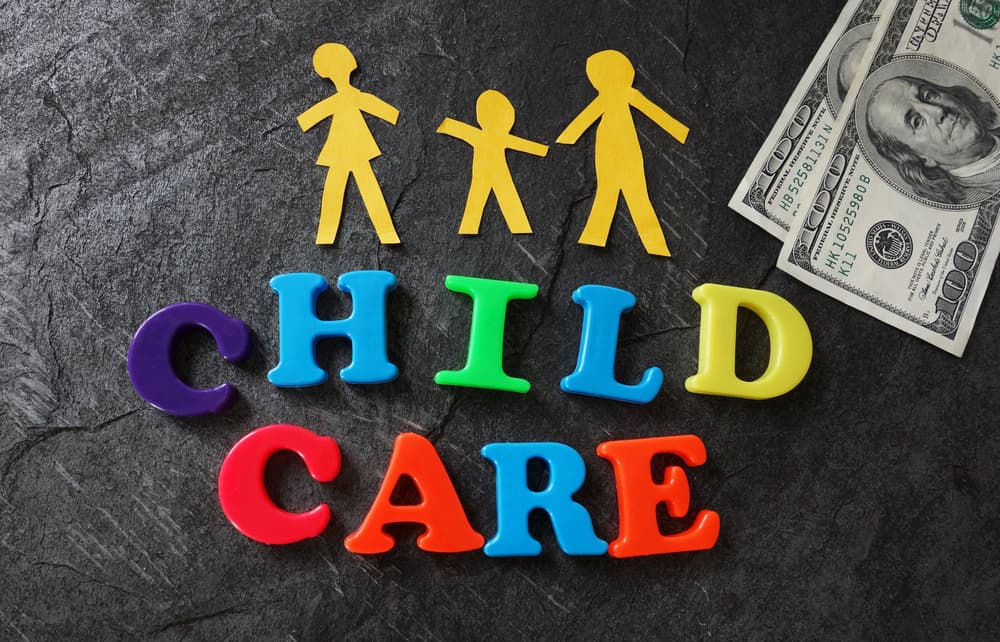
How are Childcare Expenses Divided After Divorce?
Family Law and Divorce Lawyers
Divorce forces parents to confront financial realities they may not have anticipated, and childcare expenses are one of the most pressing concerns.
Who pays for daycare, after-school programs, or summer camps? How do Illinois courts decide what’s fair? If you’re going through a divorce with children, these questions are unavoidable. So, how are childcare expenses divided after divorce?
Illinois uses both familiar legal terms like child support and visitation and newer terms such as spousal maintenance, parenting time, parental responsibilities, and parental decision-making power.
These terms carry specific legal weight, shaping how childcare costs are calculated and shared.
Here’s how Illinois courts approach childcare expenses, how parents’ contributions are determined, and what steps you can take to protect your financial future. Talk to an experienced family law attorney today.
What Are Childcare Expenses?

Childcare expenses cover the cost of care for a child while parents work or attend to other obligations.
Common childcare expenses include:
- Daycare fees for infants, toddlers, and preschool-aged children.
- After-school program costs to supervise children after school hours.
- Babysitting fees when a parent needs child care for work or emergencies.
- Summer camp expenses to care for children during school breaks.
- Special care costs for children with special needs or unique health requirements.
Courts consider these costs as childcare expenses separate from regular child support.
How Illinois Courts Handle Childcare Expenses
Illinois courts use the income shares model to divide childcare expenses between parents. It bases the financial responsibility on both parents’ combined income to give children the same financial support they would have received if their parents stayed together.
Here’s how it works:
- Court review of each parent’s income: The court adds both parents’ incomes to determine a combined total.
- Calculation of each parent’s share: Each parent’s share of the total income determines their percentage of responsibility for childcare expenses.
- Childcare expense inclusion: Childcare expenses, such as daycare or after-school care, are included in the child support calculation.
Judges have discretion when deciding how to allocate these expenses.
Courts prioritize fairness, but disagreements still happen. If parents can’t agree, a judge will decide how to divide the childcare expenses.
Determining Each Parent’s Contribution
Illinois courts don’t use a one-size-fits-all formula for childcare contributions. Instead, they evaluate key factors that shape each parent’s financial responsibility.
Here’s what courts review to decide who pays what:
- Income levels: Parents with higher earnings are assigned a greater share of the childcare costs.
- Child’s specific needs: Expenses tied to medical care, special education, or unique support needs influence how much each parent pays.
- Parenting time: If one parent spends significantly more time with the child, their financial contribution may be adjusted accordingly.
- Employment-related expenses: If childcare is necessary because one parent works unusual hours or has a demanding job, the court might shift the burden.
- Agreed-upon arrangements: Parents negotiating private agreements about childcare costs can present those to the court for approval.
Judges balance these factors with the child’s well-being in mind. If parents can’t agree, the court decides for them. Clear documentation and financial transparency are essential for a fair outcome.
Resolving Disputes Over Childcare Costs

Unexpected expenses, shifts in childcare needs, and employment changes often spark conflict. Without a clear plan, these financial issues can quickly escalate.
Parents have several options to resolve disputes:
- Mediation: A neutral third party helps parents reach a mutual agreement.
- Court intervention: If mediation fails, the court will decide how to divide the childcare expenses.
- Clear agreements: Parents who outline expense-sharing responsibilities earlier face fewer disputes later.
Strong communication and thorough documentation help parents avoid future conflicts. Keeping receipts, tracking payments, and discussing future childcare needs can also help prevent misunderstandings.
Methods for Managing Childcare Payments
Different strategies exist to simplify payment management and reduce friction.
- Direct payments: One parent pays the other directly for their share of childcare expenses. This option works best when both parents communicate well and maintain accurate records.
- Reimbursement model: One parent pays the childcare provider, and the other parent reimburses their share. This approach works when parents can agree on timing and amount.
- Shared accounts: Parents open a joint account exclusively for childcare expenses. Both parents contribute funds to the account and make payments directly from it. This method increases transparency and simplifies tracking.
- Third-party payment apps: Digital payment platforms like Venmo, PayPal, or specialized family payment apps offer an easy way to send and track payments. This method provides a clear payment history for both parents.
Clear communication and detailed record-keeping are pivotal to effective payment management. Parents should document every payment, save receipts, and track expenses to prevent disputes.
When confusion arises, having accurate records can resolve disagreements quickly. Selecting the correct payment method and keeping thorough records reduces stress and prevents future arguments over childcare expenses.
Legal Support for Childcare Cost Issues
Working with an experienced divorce lawyer gives parents the tools and guidance to handle childcare expenses effectively. Attorneys help parents address disputes, clarify payment responsibilities, and secure legally binding agreements.
This assistance protects parents’ rights and ensures that children continue to receive the care they need.
Here’s how legal support helps with childcare costs:
- Clarifying payment obligations: Attorneys review and explain childcare cost obligations so both parents understand their responsibilities.
- Drafting clear agreements: Attorneys create formal agreements outlining each parent’s financial duties to reduce the chances of future disputes.
- Enforcing court orders: Legal action may be necessary if a parent refuses to pay their share of childcare costs. Attorneys petition the court to enforce payment through wage garnishment or other measures.
- Requesting modifications: Parents often need to adjust childcare payments when financial situations change. Attorneys assist with modification requests and represent parents in court if necessary.
- Providing legal representation: In cases where parents can’t agree on childcare costs, attorneys advocate for their client’s interests during court proceedings.
Acting early prevents confusion and promotes smoother co-parenting relationships.
Divorce lawyers show you what to expect from the divorce process and how to protect your interests.
Don’t wait until problems arise—getting good legal advice as soon as possible can help you avoid mistakes and lead to a smoother divorce process.
Reach out to a Lake County family law attorney today to learn how they can help with your situation.
- Income Disparity and Child Support in Illinois - January 15, 2026
- How Is Child Custody Determined in Illinois? - January 14, 2026
- How Do I Adjust Time Sharing to Accommodate New Circumstances? - January 13, 2026
